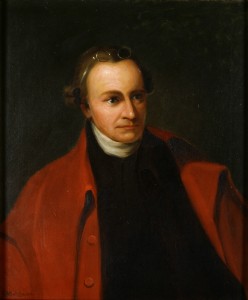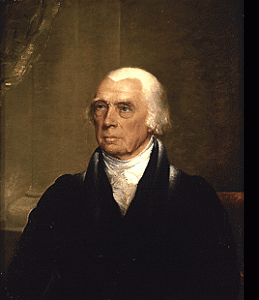Those who read this blog regularly know that I believe America had a strong Biblical basis at its founding. The evidence is pretty overwhelming. Those of us who believe that, though, need to be careful in passing along quotations we have read in secondary sources to back up our belief. Let me give a few examples of spurious quotations we should avoid using.
 George Washington was an Episcopalian who had his own family pew at the Pohick church near his Mount Vernon home. He served as a vestryman. I’ve read minutes of the vestry that show he even purchased the communion plates for the church. There are also a number of solid quotes that indicate his faith was genuine. There is one, however, that always comes to the forefront, but has no original source. He is often quoted as saying, “It is impossible to rightly govern the world [other sources say “a nation”] without God and the Bible.” Just the fact that there is a discrepancy in the exact wording should be a tipoff that something is amiss. While this is a wonderful statement, unfortunately, it cannot be traced back to anything Washington either spoke or wrote.
George Washington was an Episcopalian who had his own family pew at the Pohick church near his Mount Vernon home. He served as a vestryman. I’ve read minutes of the vestry that show he even purchased the communion plates for the church. There are also a number of solid quotes that indicate his faith was genuine. There is one, however, that always comes to the forefront, but has no original source. He is often quoted as saying, “It is impossible to rightly govern the world [other sources say “a nation”] without God and the Bible.” Just the fact that there is a discrepancy in the exact wording should be a tipoff that something is amiss. While this is a wonderful statement, unfortunately, it cannot be traced back to anything Washington either spoke or wrote.
 Then there’s this supposed quote from Patrick Henry: “It cannot be emphasized too strongly or too often that this great nation was not founded by religionists but by Christians. . . not on religions but on the Gospel of Jesus Christ.” As it turns out, this is actually a statement from the author of an article about Henry, and wrongly attributed to the Virginian of “Give me liberty or give me death” fame.
Then there’s this supposed quote from Patrick Henry: “It cannot be emphasized too strongly or too often that this great nation was not founded by religionists but by Christians. . . not on religions but on the Gospel of Jesus Christ.” As it turns out, this is actually a statement from the author of an article about Henry, and wrongly attributed to the Virginian of “Give me liberty or give me death” fame.
 James Madison, considered the Father of the Constitution, allegedly commented, “We have staked the whole of all our political institutions upon the capacity of mankind for self-government, upon the capacity of each and all of us to govern ourselves, to control ourselves, to sustain ourselves according to the Ten Commandments of God.” This one fooled me for some time as it was just so perfect for the principle of self-government that I teach in class. I even used it in my book about Biblical principles and civil government until I had to face the reality that this statement doesn’t appear anywhere in Madison’s writings. Consequently, I removed the quote when it came time for a second edition.
James Madison, considered the Father of the Constitution, allegedly commented, “We have staked the whole of all our political institutions upon the capacity of mankind for self-government, upon the capacity of each and all of us to govern ourselves, to control ourselves, to sustain ourselves according to the Ten Commandments of God.” This one fooled me for some time as it was just so perfect for the principle of self-government that I teach in class. I even used it in my book about Biblical principles and civil government until I had to face the reality that this statement doesn’t appear anywhere in Madison’s writings. Consequently, I removed the quote when it came time for a second edition.
We need to be honest. When I authored my book on the Clinton impeachment, I said the following in its preface:
My presuppositions are first and foremost Biblical in orientation. The grid through which I see the world—my basic worldview—is grounded upon Biblical principles. These principles form the basis for my values, my decisions, and my analysis of right and wrong. These principles also inform my understanding of the role of civil government, placing me on the conservative side of the political spectrum. . . .
But I am also an academic. The training I receive in academia requires that I follow the evidence wherever it may lead. I must be honest and cannot, in good conscience, misrepresent the facts. Properly understood, there is no dichotomy here. My Christianity and my academic training require the same standard. Academic integrity rests upon moral integrity, which I believe flows from Biblical faith. Consequently, when I undertake any research and writing project, I must be true to that faith.
That is my practice, and that is why I thought it important to shed some light on those false quotations. We undermine our position when we latch on to falsehoods to prove a point.
